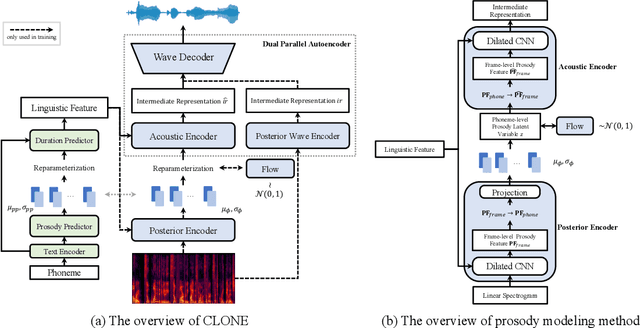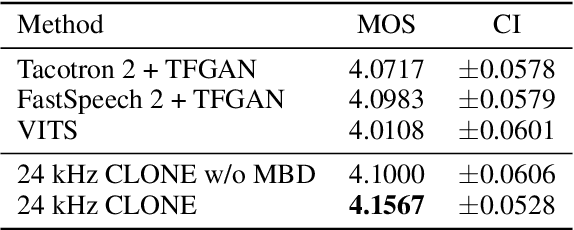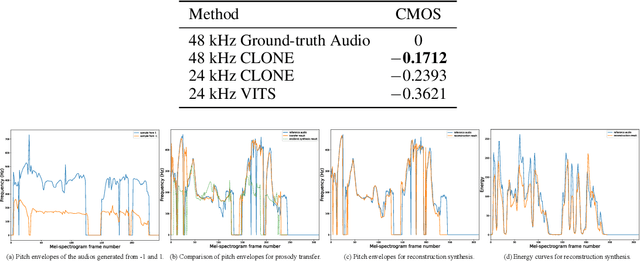Controllable and Lossless Non-Autoregressive End-to-End Text-to-Speech
Paper and Code
Jul 13, 2022



Some recent studies have demonstrated the feasibility of single-stage neural text-to-speech, which does not need to generate mel-spectrograms but generates the raw waveforms directly from the text. Single-stage text-to-speech often faces two problems: a) the one-to-many mapping problem due to multiple speech variations and b) insufficiency of high frequency reconstruction due to the lack of supervision of ground-truth acoustic features during training. To solve the a) problem and generate more expressive speech, we propose a novel phoneme-level prosody modeling method based on a variational autoencoder with normalizing flows to model underlying prosodic information in speech. We also use the prosody predictor to support end-to-end expressive speech synthesis. Furthermore, we propose the dual parallel autoencoder to introduce supervision of the ground-truth acoustic features during training to solve the b) problem enabling our model to generate high-quality speech. We compare the synthesis quality with state-of-the-art text-to-speech systems on an internal expressive English dataset. Both qualitative and quantitative evaluations demonstrate the superiority and robustness of our method for lossless speech generation while also showing a strong capability in prosody modeling.
 Add to Chrome
Add to Chrome Add to Firefox
Add to Firefox Add to Edge
Add to Edge